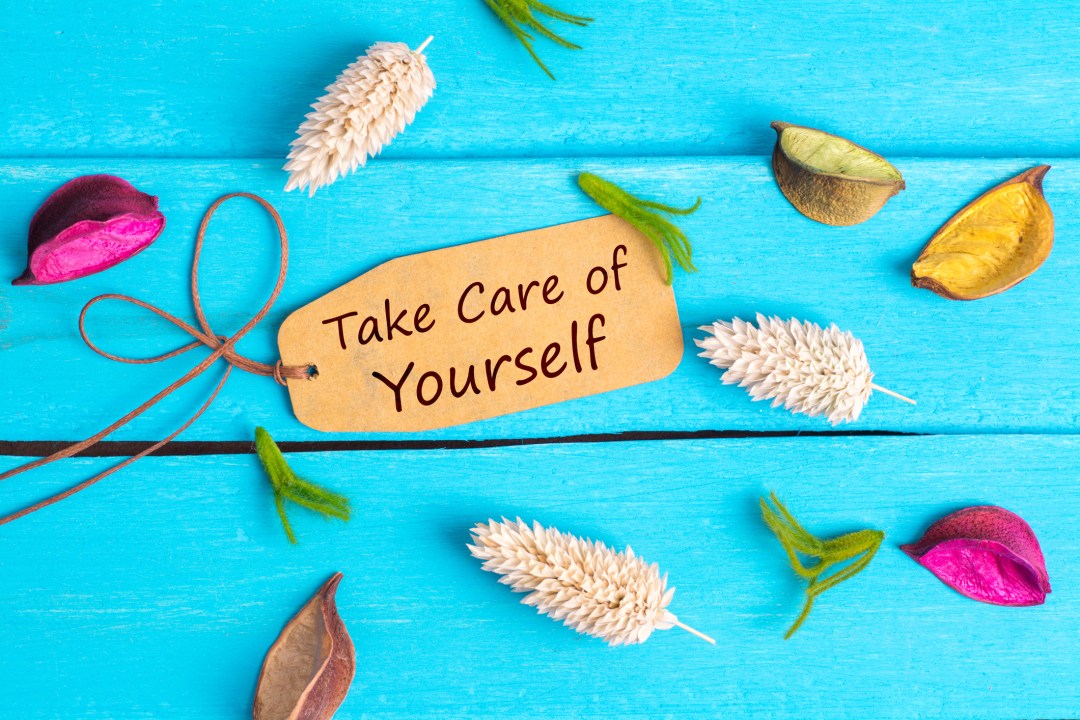How to cultivate self-compassion to manage life’s challenges

“Self-compassion is simply giving the same kindness to ourselves that we would give to others.” Christopher Germer, PhD
How many times do you find yourself beating yourself up for a mistake, your inadequacies or for not achieving something? I think many of us would agree that we can be pretty harsh on ourselves when it comes to self-criticism. As women, we may often say, “yes” to things because we feel we ought to. This can then lead us to blame ourselves when we can’t keep up with the things we have committed to. Women in particular, tend to take care of everyone else first and are more compassionate and kinder to others than to themselves.
Last week I was listening to other business owners sharing their success stories at a women’s entrepreneurial event. and The little nagging voice in my head was telling me: You’re not good enough. I am very aware that I have at times, been harsh and judgmental on myself. I know I am not alone; many clients, friends and colleagues have expressed similar thoughts.
My interest in studying self-compassion has led me realise that being self-critical serves no purpose. Self-criticism can be very stressful and can make you feel even worse. It is important that we accept ourselves as human beings, just as we are, with a full range of positive and negative emotions.
Many studies show that treating yourself with more kindness could be the best way to get better outcomes. Dr. Kristin Neff, Christopher Germer and Professor Paul Gilbert are all experts in the field of self-compassion. They have carried out many academic studies, emphasising the importance and benefits of cultivating self-compassion to increase resilience, learning and empowerment. Self-compassion is not about avoiding goals or becoming lazy. It is a great motivator and requires us to take responsibility.
Having experienced several challenging events in my life I have endeavoured to stop being my own worst critic and to cultivate more kindness toward myself. So instead of comparing myself to others at the event, I tried to calmly focus on the things I am doing well.
What is self-compassion?
Self-compassion is an essential ingredient to growing and maintaining high levels of resilience and self-development. Having self-compassion isn’t really much different to showing compassion to others. Being compassionate means you offer understanding and kindness to others when they have failures or make mistakes, rather than judge them harshly. Self-compassion means simply being kind and understanding to ourselves when we are faced with our own imperfections. It also means accepting and respecting our humanness. We can accept that not everything will go the way we want. We will encounter frustrations and sometimes fall short of our goals. As humans this is a reality we all share. But whoever said we are supposed to be perfect?
Dr. Kristin Neff is an expert in the field of self-compassion research. She states that, “With self-compassion, we give ourselves the same kindness and care we’d give to a good friend.”
Dr. Neff bases her understanding of self-compassion as comprising of three elements:
• Self-kindness – Self-compassion replaces harsh self-criticism with kinder and gentler words. Being warm and understanding allows for greater emotional self-control and calmness.
• Common humanity – Recognising that being human means being vulnerable and imperfect. We tend to adopt an irrational perception that we are the only one who is suffering or making mistakes, but of course this is not the case. It is something we all experience and go through.
• Mindfulness – It is important that we don’t suppress or ignore our negative emotions. Self-compassion requires observing our emotions, thoughts and feelings without over-identifying with them. Taking a balanced approach in a non-judgmental way to pay attention to what they are telling us.
How do you cultivate self-compassion?
The following exercises may be helpful when you are struggling with challenges or difficulties.
1. “Why not treat yourself like a good friend and see what happens?” Dr.Kristin Neff
- Think about what you would normally say to a best friend experiencing a difficult situation. How you would speak to them? Consider the words and importantly tone of your voice.
- Ask yourself how you would you normally respond to yourself in a similar situation. What language and tone of voice do you use?
- Do you notice a difference in the way you speak to yourself as opposed to your friend? If so, why is that? Take notice of what changes there are that lead you to treat yourself differently.
- Write down how you think things would change if you responded to yourself in the same way you naturally respond to a close friend when you’re experiencing difficulties? Notice what positive changes you experience by treating yourself as you would your best friend.
2. Write yourself a letter
Take the perspective of being a compassionate friend. Ask yourself, “What would a compassionate and kind friend say to me right now when I am feeling self-critical? Write the letter using the words of your compassionate friend. Later read the letter and receive it as if it is from you.
3. Give yourself a gentle supportive hug
Research has shown that physical touch releases oxytocin, also known as the “cuddle hormone,” which soothes distress, evokes a sense of security and calms our cardiovascular system.
- Sit comfortably, calmly take a few light breaths and then cross your arms and give yourself a gentle hug. Practicing this is a simple, but effective way of being inwardly kind to yourself and can give comfort when stressed.
Benefits of cultivating self-compassion
There are many benefits but here are just a few.
- Develops a kinder and more caring relationship with yourself.
Instead of berating yourself or using harsh internal criticism to drive you forward, accept who you are and value all your strengths, talents, and skills. Accept and embrace your vulnerabilities and imperfections. Being more compassionate is crucial to self-acceptance. With practice in self-compassion you can quieten down your inner critic. This can be very liberating and enable you to live the life you want with confidence.
- Encourages resilience in the face of adversity
By remaining level-headed you can be calm and retain your energy in the face of failure or difficulty. Instead you can see it as an opportunity for growth and face some of the painful feelings, rather than just trying to ignore them get rid of them.
- Boosts motivation
Instead of beating yourself up or being defensive you can take the opportunity to learn from the difficulty or failure. It involves the desire to lessen the pain and to restore, to thrive and to be happy.
- Reduces the negative effects of stress
It is suggested, although not proven, that oxytocin, the “cuddle hormone” is released when you practice self-compassion. By understanding the reason why you are self-critical and the underlying threats you perceive. You can then provide alternative views and feelings. It will also enable you to feel more confident in your own abilities and make better decisions.
- Increases self-worth
Neff states that self-compassion evokes a more stable sense of self-worth over time. This occurs because you are no longer basing your self-worth on how well you are competing or on how you look.
There is still research to be done on the importance of self-compassion. However there is evidence that it does improve our overall wellbeing and resilience.
Being kinder to yourself can enable you to face life’s inevitable challenges and difficulties in a more balanced way.
If any of this has resonated with you and you would like to find out more about how to cultivate your self-compassion then please don’t hesitate to contact me and let’s talk.
Contact kate@finerthinking.com or call 07736 649584 www.finerthinking.com
Empowering stressed and overwhelmed female entrepreneurs to build their resilience and thrive.
Kate Darbyshire Evans
Helping women entrepreneurs and designers in the fashion industry who struggle with overwhelm and anxiety to thrive
I help women entrepreneurs and designers who struggle with overwhelm and anxiety to rethink their response to stress and learn how to accept, embrace and utilise it to become more resilient, happier and more successful. Stress is inevitable but by changing your attitude to stress you can transform your challenges and difficulties into opportunities and possibilities. Utilising stress can be liberating and empowering by choosing to see stress as your friend, rather than seeing it as your enemy. By building your resilience you will be able to remain flexible in your responses to your thoughts, behaviours and emotions when under stress. Learning how to transform stress and make it work for you is exciting and liberating. As a result you will feel more empowered, confident and resilient and be able to: • rethink and change your attitude to stress • know what it means to be good at stress • embrace challenges with confidence and positivity • persist in the face of setbacks • use anxiety to help you rise to your challenges • see effort as the way to mastery and achievement • turn nerves into excitement • how to turn a threat into a challenge • turn adversity into a resource • turn self focus into bigger than self goals As an experienced coach, with over 20 years in the fashion industry at director level, I love helping and supporting women to explore and understand the real underlying causes of their stress that undermines their resilience. My aim is to bring clarity, motivation and purpose by helping them challenge their attitude to stress and move from a fixed mindset towards a growth mindset. To learn the skills to respond to their thoughts, feelings and behaviours in a positive, powerful and sustainable way. This enables them to strengthen their resilience and increase their self-esteem so they can more confidently deal with the challenges that life throws their way. Running a business, whether or not you employ people or not is often isolating and very challenging at times. You can easily become overwhelmed by the workload, constant change and the responsibility it involves. Stress and burnout can creep up on you. I understand what burnout is like that having personally experienced severe stress in my twenties. I have also experienced some major challenges and changes in my life, including redundancy, severe injury and divorce so I appreciate and value the importance and benefits of developing resilience and self-care. Women want to manage their lives better, both practically and emotionally and achieve their goals and aspirations. As an owner and manager of people it is important that you create an environment where you, your people and the business can flourish and thrive. This requires focusing on becoming resilient by developing a growth mindset and accepting and embracing stress rather than trying to avoid or reduce it. In addition to I speak on how to rethink and transform attitudes to stress to empower women and build their resilience. I also write articles on the subject. www.finerthinking.com



